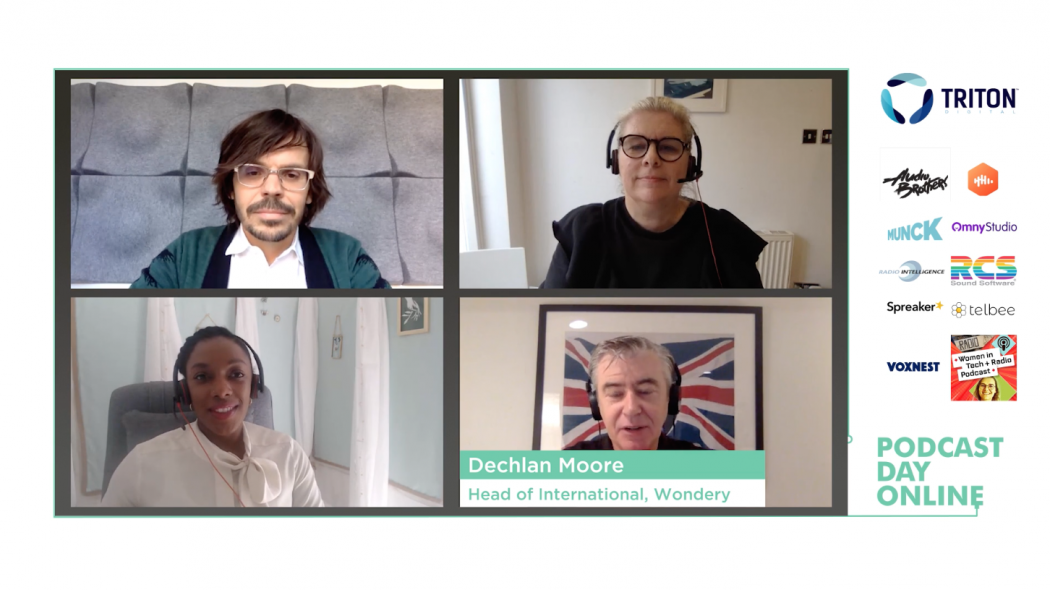So which podcasts travel?
Dechlan Moore, Wondery, started off this session, seeing the globalisation of some shows in the English speaking world prompted Wondery to take some of their very successful podcasts global in different languages. He said Wondery takes care of the localisation of the podcast but they work with local partners to moneytise these podcasts. He spoke about which markets they are expending into within MENA and southern Africa.
Maria Williams said Bauer is going in the opposite direction, taking a successful Danish podcast “Danish Homicide cases – Death in Denmark” into English. Working within a big brand means sharing ideas and successes. The model was actually already there in the UK, in terms of the English loving Scandi Noir and so “why not a podcast” in the same genre. She then played a sneak peak of this new podcast, launching on 28th October 2020!
Jakob Munck, Munck Studios said they are looking into the markets they are already in which include Scandinavia. He described how they have adapted the story of the death of the Swedish Prime Minister something which happened in the 1980s when Stieg Larson was a journalist so there is a wealth of material on this story to use. Also CBC who they are working with on this project had already started working on cross-border projects, which was also a huge advantage.
The group spoke about the challenges of adapting these types of non-English podcasts or vice versa – voice talent, sound and the responses to the podcast by listeners. Maria said that a direct conversion was considered for 'Death in Denmark' however there was a need to be authentic and also there was a cost implication of this.
She said that her inspiration came from the TV adaptation of “Chernobyl” which used actors with regional English accents and didn’t try to pretend to be anything other than true. However the final podcast uses real Danish voices (because Danes all speak good English), this gives a great realism to the podcast, was cost effective and faster. She did say that there was a lot of work done on translation and getting this totally right a native English speaker with an understanding of law would have been a benefit. She also went on to speak more about what they did with production to keep it ‘true’.
Jakob said many things they work on are very collaborative and people are used from one podcast with people who work on the original. They are looking into models with a main production with CBC and then collaborations with other, local language collaborators.
An interesting session with good hints and tips on going Global!
